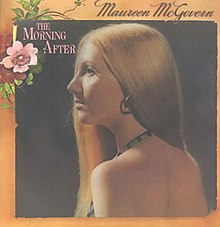
Robert Clark Seger is a retired American singer, songwriter, and musician. As a locally successful Detroit-area artist, he performed and recorded as Bob Seger and the Last Heard and the Bob Seger System throughout the 1960s, breaking through with his first album, Ramblin' Gamblin' Man in 1969. By the early 1970s, he had dropped the 'System' from his recordings and continued to strive for broader success with various other bands. In 1973, he put together the Silver Bullet Band, with a group of Detroit-area musicians, with whom he became most successful on the national level with the album Live Bullet (1976), recorded live with the Silver Bullet Band in 1975 at Cobo Hall in Detroit, Michigan. In 1976, he achieved a national breakout with the studio album Night Moves. On his studio albums, he also worked extensively with the Alabama-based Muscle Shoals Rhythm Section, which appeared on several of Seger's best-selling singles and albums.

Eliminator is the eighth studio album by American rock band ZZ Top. It was released on March 23, 1983, by Warner Bros. Records, and rose high on the charts in many countries. Four hit singles were released—"Gimme All Your Lovin'" which reached the American Top 40, "Sharp Dressed Man", "TV Dinners" and their most successful single, "Legs". Eliminator is ZZ Top's most commercially successful release, with sales of 11 million and diamond certification in the US.
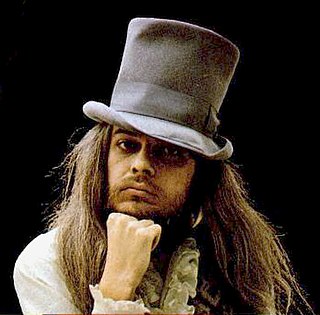
Leon Russell was an American musician and songwriter who was involved with numerous bestselling records during his 60-year career that spanned multiple genres, including rock and roll, country, gospel, bluegrass, rhythm and blues, southern rock, blues rock, folk, surf and the Tulsa sound. His recordings earned six gold records and he received two Grammy Awards from seven nominations. In 2011, he was inducted into both the Rock and Roll Hall of Fame and the Songwriters Hall of Fame.
Lighthouse is a Canadian rock band formed in 1969 in Toronto, Ontario, whose repertoire included elements of rock music, jazz, classical music, and swing and featured horns, string instruments, and vibraphone. They won Juno Awards for Best Canadian Group of the Year in 1972, 1973, and 1974.

One Man Dog is the fourth studio album by singer-songwriter James Taylor. Released on November 1, 1972, it features the hit "Don't Let Me Be Lonely Tonight", which peaked at number 14 on the Billboard charts on January 13, 1973. The follow-up single, "One Man Parade", also charted but less successfully, peaking at number 67 in the US and reaching number 55 on the Canadian Adult Contemporary chart. The basic tracks were primarily recorded in Taylor's home studio.

Maureen Therese McGovern is an American singer and Broadway actress, well known for her renditions of the songs "The Morning After" from the 1972 film The Poseidon Adventure; "We May Never Love Like This Again" from The Towering Inferno in 1974; and her No. 1 Billboard adult contemporary hit "Different Worlds", the theme song from the television series Angie.

The Hudson Brothers were an American musical group formed in Portland, Oregon, consisting of brothers Bill Hudson, Brett Hudson and Mark Hudson. They were discovered by a record producer while recording music at a local studio, and offered a recording contract. After releasing several garage rock singles in the late 1960s as The New Yorkers, the group began releasing material under the names Everyday Hudson, and Hudson.

Rock of Ages: The Band in Concert is a live album by the Band, released in 1972. It was compiled from recordings made during their series of shows at the Academy of Music in New York City, from December 28 through December 31, 1971. It peaked at No. 6 on the Billboard 200 chart, and was certified a gold record by the RIAA. An expanded release of recordings taken from the same series of shows, called Live at the Academy of Music 1971, was released in 2013.

"The Morning After" is a song written by Al Kasha and Joel Hirschhorn for the 1972 film The Poseidon Adventure, winning Best Original Song at the 45th Academy Awards. Following this success, Maureen McGovern recorded a single version that became a No. 1 hit in the US for two weeks during August 1973, with Gold record sales. Billboard ranked it as the No. 28 song for 1973.

Music & Me is the third studio album by American singer Michael Jackson, released on April 13, 1973 on the Motown label. The album was reissued in 2009 as part of the three-disc compilation Hello World: The Motown Solo Collection.
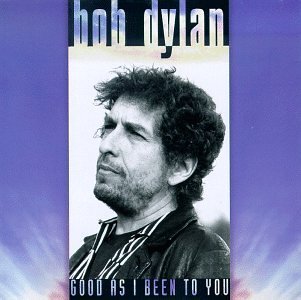
Good as I Been to You is the 28th studio album by American singer-songwriter Bob Dylan, released on November 3, 1992, by Columbia Records.

Bob Dylan's Greatest Hits Vol. II, also known as More Bob Dylan Greatest Hits, is the second compilation album by American singer-songwriter Bob Dylan, released on November 17, 1971 by Columbia Records. With Dylan not expected to release any new material for an extended period of time, CBS Records president Clive Davis proposed issuing a double LP compilation of older material. Dylan agreed, compiling it himself and suggesting that the package include a full side of unreleased tracks from his archives. After submitting a set of excerpts from The Basement Tapes that Davis found unsatisfactory, Dylan returned to the studio in September 1971 to recut several Basement songs, with Happy Traum providing backup.
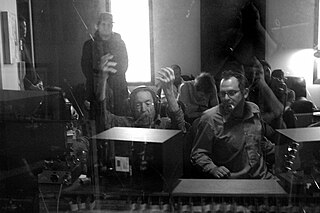
Donald William 'Bob' Johnston was an American record producer, best known for his work with Bob Dylan, Johnny Cash, Leonard Cohen, and Simon & Garfunkel.

Foxy Lady is the eighth studio album by American singer-actress Cher, released in July 1972 by Kapp Records. Following the commercial success of the previous album Gypsies, Tramps & Thieves, Cher again collaborated with Snuff Garrett (producer), Al Capp (arrangements) and her then-husband Sonny Bono (co-producer). Foxy Lady was also the second and last record for Kapp. The album was also promoted on Cher's successful The Sonny & Cher Comedy Hour show. After its release, it was well received by critics, but unlike her previous effort Gypsies, Tramps & Thieves, had only moderate chart and sales success.

No Muss...No Fuss is the fifth studio album by American rock singer Donnie Iris, released by HME in 1985.

Wild Cherry is the first studio album by Wild Cherry, released in 1976. The album includes the group's only major single success, "Play That Funky Music".

"We May Never Love Like This Again" is a song written by Al Kasha and Joel Hirschhorn for the 1974 disaster film The Towering Inferno. It won the Academy Award for Best Original Song, and was performed by Maureen McGovern both for the film score and, briefly, in the film itself with McGovern portraying a singer.
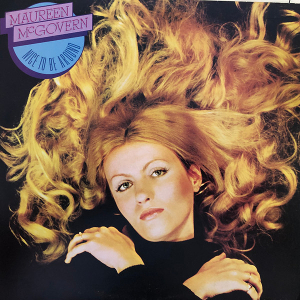
Nice to Be Around is Maureen McGovern's second studio album, released in 1974. The title track was the theme from the 1973 film Cinderella Liberty. McGovern composed the music for the songs "All I Want ," "Love Knots," "Little Boys & Men", and "Memory."

"Then You Can Tell Me Goodbye" is a song written by John D. Loudermilk. It was first released in 1962 by Don Cherry, as a country song and again as a doo-wop in 1967 by the group The Casinos on its album of the same name, and was a number 6 pop hit that year. The song has since been covered by Eddy Arnold, whose version was a number 1 country hit in 1968, and by Neal McCoy, whose version became a Top 5 country hit in 1996.
"Rose Garden" is a song written in 1967 by American singer-songwriter Joe South. It was first recorded by Billy Joe Royal on his 1967 studio album Billy Joe Royal Featuring "Hush". Versions by South himself and Dobie Gray appeared shortly after the original. Gray's version became a minor hit in North America in 1969.
